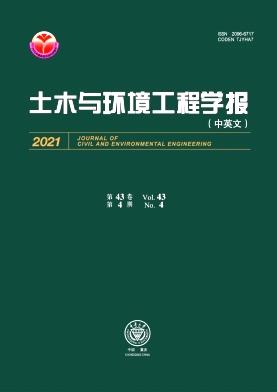Effects of Saline Water and Irrigation Interval on Soybean (Glycine max) Yield
Q2 Engineering
Tumu yu Huanjing Gongcheng Xuebao/Journal of Civil and Environmental Engineering
Pub Date : 2021-01-01
DOI:10.37421/2165-784X.2021.11.401
引用次数: 2
Abstract
The declining availability of fresh water has become a worldwide problem, which maintains the development of alternative, secondary quality water resources for agricultural use. Several studies recommend that give attention for selected crops that can tolerate a degree of water and salinity stresses when saline water is used for irrigation. In this study, the effects of different irrigation intervals at different salinity levels of irrigation water on Soybean yield and their impacts investigated using three irrigation intervals (I1 =3 days, I2=4 days and I3=5 days) with four salinity levels (S1=4 dSm-1, 5 dSm-1 and 6 dSm-1) in a factorial combination using CRD with three replications. The result showed that salinity, irrigation interval and their interaction were highly significance effects (p<0.001) on number of pod per plant, number of seed per plant and grain yield of Soybean. The highest number of pod number (88.33), grain yield (2.31 ton/ha) and number of seed per plant (172.33) was recorded from Soybean which was irrigated with the first salinity level, i.e., fresh water (S1) with irrigation interval one (3 days), S1I1; while the lowest pod number per plant (6.67), number of seed per plant (12.67) and minimum grin yield (0.034 ton/ha) was obtained from Soybean irrigated by salinity level four (S4) with 5 days irrigation interval (S4I3).盐碱水和灌溉间隔对大豆产量的影响
淡水资源的减少已成为一个世界性的问题,这一问题阻碍了农业利用的替代、二级优质水资源的开发。一些研究建议,当使用盐水进行灌溉时,应注意挑选出能够耐受一定程度的水和盐胁迫的作物。本研究采用3个重复的CRD因子组合,研究了不同灌溉水盐度水平下不同灌溉间隔对大豆产量的影响及其影响,采用4个盐度水平(S1=4 dSm-1、5 dSm-1和6 dSm-1)的3个灌溉间隔(I1 =3天、I2=4天和I3=5天)。结果表明,盐度、灌溉间隔及其互作对大豆单株荚果数、单株种子数和籽粒产量有极显著影响(p<0.001)。以第1盐度水平(即淡水(S1),灌溉间隔1 (3 d), S1I1)灌溉的大豆,录得最高的荚果数(88.33)、籽粒产量(2.31吨/公顷)和单株种子数(172.33);而盐度4级(S4)、灌溉间隔5 d (S4I3)灌溉的大豆单株荚果数最低(6.67),单株种子数最低(12.67),单株单粒产量最低(0.034 t /ha)。
本文章由计算机程序翻译,如有差异,请以英文原文为准。
求助全文
约1分钟内获得全文
求助全文
来源期刊

Tumu yu Huanjing Gongcheng Xuebao/Journal of Civil and Environmental Engineering
Engineering-Architecture
CiteScore
1.30
自引率
0.00%
发文量
5346
 求助内容:
求助内容: 应助结果提醒方式:
应助结果提醒方式:


